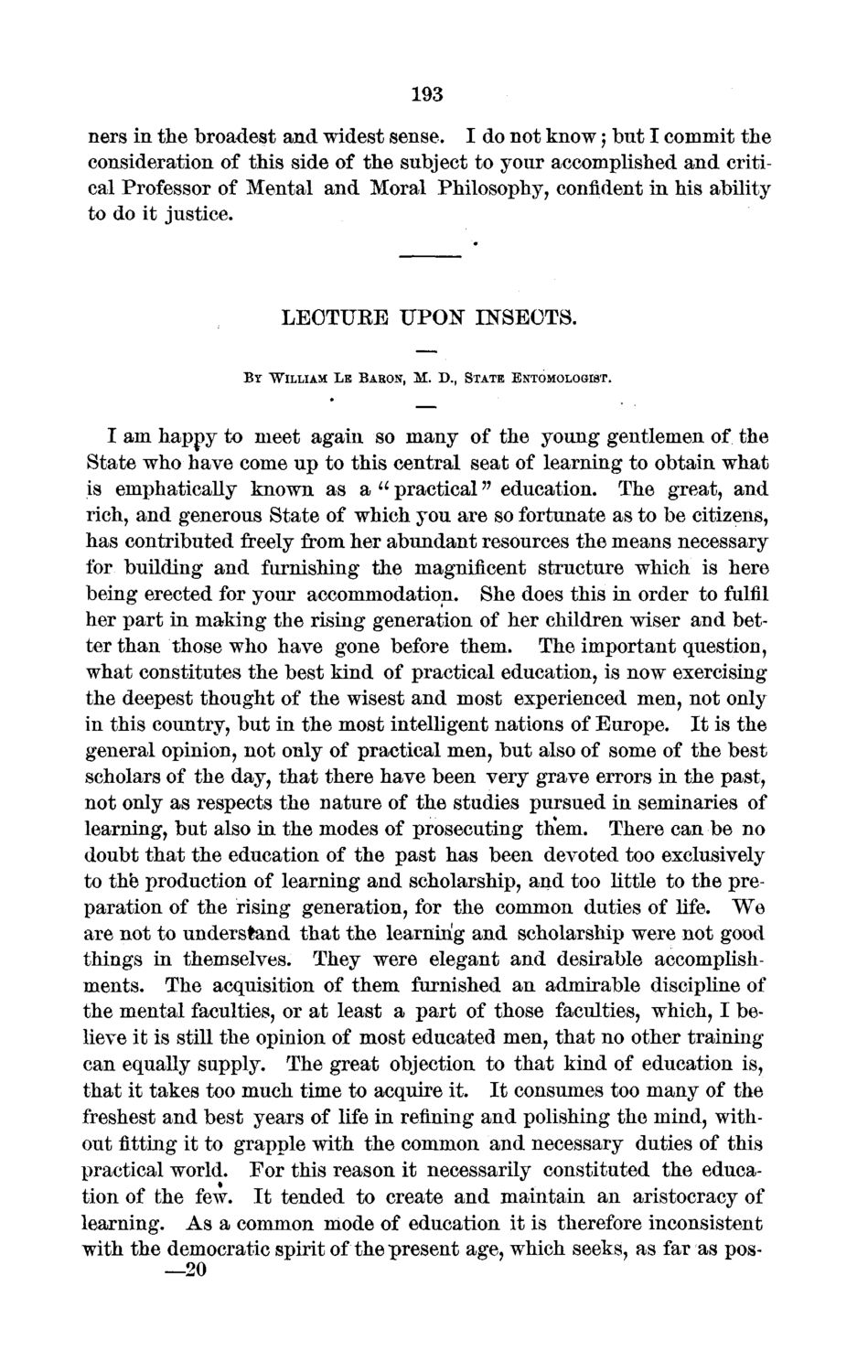| |
| |
Caption: Board of Trustees Minutes - 1872
This is a reduced-resolution page image for fast online browsing.

EXTRACTED TEXT FROM PAGE:
193 ners in the broadest and widest sense. I do not know) but I commit the consideration of this side of the subject to your accomplished and critical Professor of Mental and Moral Philosophy, confident in his ability to do it justice. LEOTUEE UPON INSECTS. B Y WILLIAM L E BARON, M. D., STATE ENTOMOLOGIST. I am happy to meet again so many of the young gentlemen of the State who have come up to this central seat of learning to obtain what is emphatically known as a " practical" education. The great, and rich, and generous State of which you are so fortunate as to be citizens, has contributed freely from her abundant resources the means necessary for building and furnishing the magnificent structure which is here being erected for your accommodation. She does this in order to fulfil her part in making the rising generation of her children wiser and better than those who have gone before them. The important question, what constitutes the best kind of practical education, is now exercising the deepest thought of the wisest and most experienced men, not only in this country, but in the most intelligent nations of Europe. It is the general opinion, not only of practical men, but also of some of the best scholars of the day, that there have been very grave errors in the past, not only as respects the nature of the studies pursued in seminaries of learning, but also in the modes of prosecuting th*em. There can be no doubt that the education of the past has been devoted too exclusively to thb production of learning and scholarship, and too little to the preparation of the rising generation, for the common duties of life. We are not to understand that the learning and scholarship were not good things in themselves. They were elegant and desirable accomplishments. The acquisition of them furnished an admirable discipline of the mental faculties, or at least a part of those faculties, which, I believe it is still the opinion of most educated men, that no other training can equally supply. The great objection to that kind of education is, that it takes too much time to acquire it. It consumes too many of the freshest and best years of life in refining and polishing the mind, without fitting it to grapple with the common and necessary duties of this practical world. For this reason it necessarily constituted the education of the few. It tended to create and maintain an aristocracy of learning. As a common mode of education it is therefore inconsistent with the democratic spirit of the present age, which seeks, as far as pos—20
| |